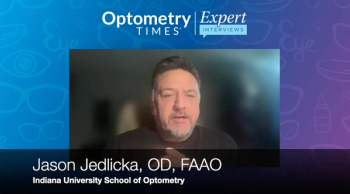
ARBO loosens rules on online CE during COVID-19 pandemic
Novel coronavirus 2019 and associated COVID-19 concerns have prompted large-gathering cancellations and social distancing. Plus, travel is severely restricted and some cites are on lockdown-and
Related:
Vision Expo East, one of the largest eyecare meetings, is no longer taking place next week in New York City. Other smaller meetings have been cancelled as well. At this time the American Optometric Association’s (AOA) annual meeting, Optometry’s Meeting, is still scheduled for late June; however, that decision could change in the coming weeks.
ODs still need their continuing education (CE) credits to maintain licensure, and many state boards of optometry limit (or prohibit) the number of online CE hours for licensure.
Related:
To that end, the Association of Regulatory Boards in Optometry (ARBO) has
In-person to online CE
According to an
This means that attendees must be able to have immediate live interaction with the course instructor, such as asking questions.
Related:
Related:
ARBO Executive Director Lisa Fennell says that the relaxed rules will be in place through May 31, 2020.
“Any organization or CE provider that had planned a live activity and had already submitted courses to COPE is able to present them online in an interactive way,” she says. “Attendees have to be able to interact with the instructor in real time.”
Related:
Fennell says that a temporary relaxation helps all involved.
“The companies that had planned CE are going to be out a lot of money, and we want them to do what they had planned to do. This is a way to help them,” she says.
However, moving from in-person to online CE with live interaction may be a challenge for event planners. Pivoting to interactive distance learning requires additional planning and infrastructure.
Related:
Online optometry community ODwire.org, which held its sixth annual
“With COVID-19 making travel impossible and forcing many ODs to stay home from work, we want to make it as easy and safe as possible for people to fulfill their mandatory continuing education requirements in these difficult times,” says conference co-organizer Paul Farkas, OD, FAAO.
Related:
State boards must be on board
Fennell cautions ODs that state boards of optometry may not allow online interactive CE as live CE, regardless of COPE rule changes.
“State boards may limit the number of online hours or not allow them at all,” she says. They don’t recognize interactive CE as live. That’s why COPE has had rules. We went to state boards to tell them [of this change], and we hope they will allow this.”
She says that some states are giving their own waivers for CE.
“I am hopeful that state boards will all follow and it won’t matter if COPE allows online interactive CE or not,” she says. “If state boards allow it, then there will not be an issue as far as COPE rules.”
ODs interested in earning online interactive CE hours should contact their own state boards to ensure that the credits will be allowed.
Says Fennel: “We wanted to help and be flexible, knowing what everyone is going through right now. ARO will continue to monitor the situation and potentially extend it further if we have to.”
Newsletter
Want more insights like this? Subscribe to Optometry Times and get clinical pearls and practice tips delivered straight to your inbox.















































